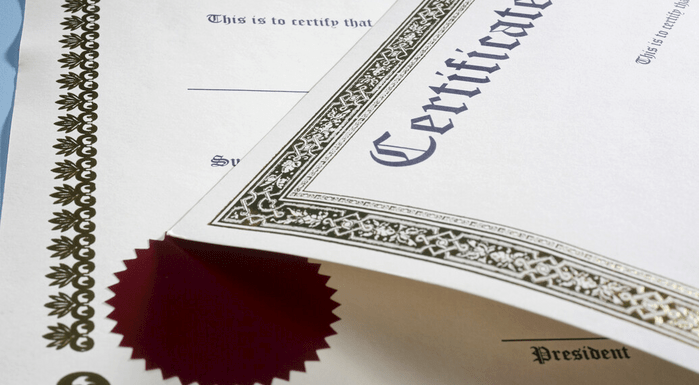ICAEW faced its own challenges but strove to maintain everyday operations at Chartered Accountants’ Hall amid the chaos, recognising the vital contribution that ICAEW Chartered Accountants were making to the war effort through their service in the armed forces, by working in wartime industries and on the home front.

Wartime operations at Chartered Accountants’ Hall
The services of chartered accountants were at a premium during the war years, working in great numbers in wartime ministries and within industry. Members were also dealing with a myriad of new issues, ranging from the impact of a new excess profits tax to the complications of auditing war damage without giving away useful information to the enemy.
The danger to Chartered Accountants’ Hall was starkly illustrated by the damage to buildings in the surrounding area. A bomb dropped during an air raid on 10 May 1941 struck the gas main, starting a fire of such intensity that it completely destroyed one of the grandest livery halls in the city (Carpenters’ Hall) on nearby Throgmorton Avenue. Deloitte’s offices and store room on London Wall were also destroyed the same night, taking with it many valuable historic documents.
Chartered Accountants’ Hall escaped with relatively light damage. A landmine bomb exploded nearby in 1940, melting the lead in the window panes and damaging the stonework. Later in the war, the official ICAEW history notes the difficulties faced by council committees, whose work was frequently disrupted by the intensive bombardment of London by flying bombs.
The Incorporated Accountants were less fortunate. After a V1 flying bomb struck Incorporated Accountants' Hall in late 1944, ICAEW provided support by hosting their council and committee meetings at Chartered Accountants' Hall, while their members were allowed to make use of the ICAEW Library during the repairs.
Despite the dire circumstances, the work of ICAEW at Chartered Accountants’ Hall continued apace, adapting to the much-changed world. Textbooks were sent to prisoners of war and arrangements were made to hold examinations in the prisoner of war camps in cooperation with the Red Cross.
The ICAEW Library remained open throughout the war, but the regular library staff were absent doing war work. The Librarian, Cosmo Gordon, was working for the Board of Trade, where he was responsible for retail distribution throughout Scotland. His assistant, Hugh W Thomson, left the library to join the Merchant Service on 9 November 1939. New staff were recruited to help see the library through the war, keeping the regular library work going and helping members with enquiries resulting from wartime legislation.
Gordon’s wife, Frances Gordon, took on the role of Assistant Librarian in March 1941 and continued in this role for just over a year, before handing over to new recruit Mrs S Lachlan to take over until the conclusion of the war. ICAEW made sure to thank these women for their efficient running of the service while normal service was suspended.

Strategic relocation of rare books
The ICAEW rare book collection has long been recognised as one of the finest collections in the world, with more than 4,000 works on accountancy spanning from the 15th century to the early 20th century. Among the collection are many rare and unique works.
Recognising the significant risk that the outbreak of war would pose, ICAEW staff took pre-emptive measures to protect the rarest books. On the brink of war in March 1939, the Institute made plans for the transfer of the most valuable volumes to a library or museum outside London.
A short list of five locations was drawn up: Bangor, Hereford, Taunton, Exeter and Truro. The librarian was dispatched to Exeter and Truro to assess their suitability as places of deposit, with the decision falling in favour of Truro.
Rather than wait for war to start, with all the difficulties in obtaining transport that would result, ICAEW dispatched five heavy cases of rare books on 2 May 1939 to the custody of George Penrose, Curator of the County Museum of Cornwall. The museum did not charge anything for storage and agreed that the books could remain at Truro as long as was needed.
ICAEW would not have foreseen the ‘Baedeker’ raids, a reprisal for the RAF bombing of historic towns in Germany, which made some of their safe locations far riskier than could have been imagined. The state of the art Central Library in Exeter, for example, was reduced to a shell by an intense fire following an air raid in 1942, resulting in the loss of over one million books and historic documents.
Later in the war, other books were also relocated. On 25 January 1941 a duplicate set of 100 of the most heavily used library books was deposited at the library of the Chartered Insurance Institute in case disaster struck at Chartered Accountants’ Hall. Other sets of books were placed in storage in the basement to give them maximum protection within the building.

Post-war recovery and legacy
Assistant Librarian Hugh W Thomson returned in September 1945. Among his first tasks was to supervise the return of the five cases of rare books on their journey by rail back from Truro. The books were in good condition, aside from “light damage to the bindings from moths”.
In the final months of 1945 Cosmo Gordon and Hugh Thomson set about returning the library to its pre-war condition, reassembling the collection from its various safe storage locations.
While at Truro, the books were used by a 20-year-old South African student, Basil Yamey, before he returned to join the South African air force. The results of his research using the collection were published in 1940.
After the war, Yamey would go on to become a pioneer of historical accounting research and advised ICAEW on rare book purchases for many decades until his death at the age of 101 in 2020.
ICAEW purchased many of the books that Professor Basil Yamey had collected on accounting history during his long and successful career, adding them to the library collection.
Accountants in WW2
Browse the Library's collection of articles and resources that can help with research into members of your family or firm who served during the Second World War.




